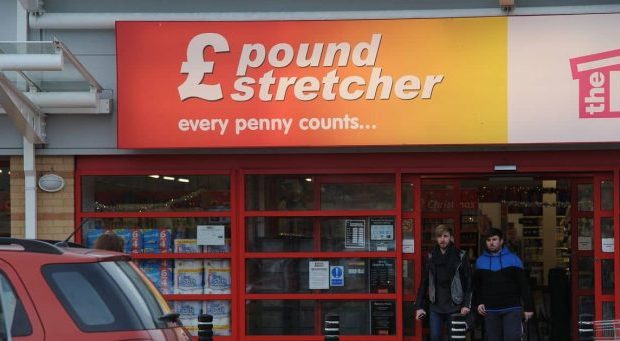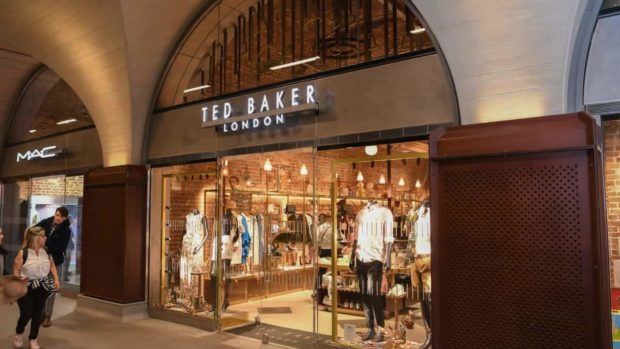Anyone who has glanced at a newspaper during the past month knows that pundits are bemoaning the state of the retail sector. A typical comment is this, from Ernst & Young’s head of retail, Gavin George: “The feel-good factor has gone for most UK households, and the outlook for the retail sector is gloomy”. The KPMG/SPSL Retail Think Tank predicted that the widely reported “difficult trading positions” over Christmas look set to continue through the first quarter of 2008 and that the sector’s state of health will deteriorate “further and at a faster pace”.
But a far cheerier picture is being painted by a number of multichannel merchants that continued to flourish online during the Christmas season.
Star performers
Year-on-year revenues at listed apparel etailer ASOS.com, for one, soared 86 per cent in the seven weeks to 20th January, with sales for the 42 weeks to 20th January up 88 per cent on the previous year. Profit for the year to 31st March 2008 is “likely to be significantly ahead of market expectations”, according to a company statement, and analysts Seymour Pierce strongly recommended buying shares in the business. “Despite the pressure on the consumer, we have no doubt that ASOS will continue to benefit from both favourable
macro trends and the many growth opportunities that are available to the business now it has taken a clear lead in the online fashion retail space” noted Seymour Pierce’s Andrew Wade in his 23rd January report.
Other publicly traded retailers to report glad tidings include ethical etailer Adili, whose sales in the run-up to Christmas rose 388 per cent from the previous year (though it must be noted that Adili is less than two years old); multititle mailer N Brown Group, whose like-for-like sales jumped 14 per cent; TV home shopping company Ideal Shopping Direct, which was up nearly 28 per cent, taking full-year sales to £97 million; and business-to-business and business-to-consumer mailer Findel, up a record 23 per cent.
Posting what surely must be the highest sales rise in the sector was music-inspired fashion merchant EBTM (Everything but the Music), which told the City it achieved a 590 per cent year-on-year increase in sales, assisted by its May acquisition of Lowlife and its July purchase of Atticus. It also reported its maiden operating profit: £160,000 for the half-year to 31st October, compared with a loss of £320,000 in the same period of 2006.
EBTM’s stellar showing came despite a drop in conversion rates in the second half of the year resulting from migration to a new eCommerce platform. In fact, chief executive Richard Breeden conceded that the problems with this transition, along with a delay in appointing US-based licensees for its Atticus brand, will cause full-year results to fall short of expectations.
In the private sector, Littlewoods Shop Direct Group (LSDG) saw sales rise 7 per cent for the six-week period to 4th January. Its
flagship brand, Littlewoods Direct, enjoyed a sales growth of 20 per cent, with year-on-year online sales up 80 per cent. Group chief executive Mark Newton-Jones said in a statement that he was pleased with LSDG’s progress, two years into a five-year turnaround plan, but there is “still much more to do”.
Bedding and home accessories cataloguer/retailer The White Company also announced brisk trading over Christmas. It benefited from a surprisingly strong 17 per cent rise in store sales, whilst online sales jumped 27 per cent. For the year ending March 2008, the company projects turnover of more than £70 million.
Online garden centre Gardening Express performed solidly in 2007 as well. Although chief executive Chris Bonnett admitted that growth slowed in the second half of the year, full-year sales were up 90 per cent from 2006, with some month-on-month rises of 130 per cent, and overall performance was well ahead of expectations.
Every silver lining…
Research from Ernst & Young revealed that UK-quoted retailers had issued 47 profit warnings in 2007. It also noted that there was a
“stark” trend toward polarisation between the Christmas winners and the losers. Electricals and furniture sales were under the most pressure, as “cautious consumers refrained from making major purchases”. Conversely, there was the expected strong growth from online merchants and niche sectors such as video games and mobile phones. In addition, the report said that “grocery retailing held up well with
almost all the major players enjoying solid if not impressive growth”.
Flying Brands was among the marketers issuing profit warnings. Despite a 13 per cent increase in online sales, total second-half revenues for the multititle cataloguer were flat. Flying Brands told the City that its Flying Flowers title had a disappointing Christmas campaign as a result of “weak external advertising response and customer faith in postal deliveries not being fully restored in the aftermath of the Royal Mail strike”. Another of its brands, Greetings Direct, had a weak six months as well. Although trading among Flying Brands’ other units including Gardening Direct and Listen2-was good, it wasn’t strong enough to offset the poor performance of Flying Flowers and Greetings Direct.
To boost revenues Flying Brands is investing £2 million in its core businesses, especially Flying Flowers, Gardening Direct and Greetings Direct. Top priorities will be “internet development, new customer recruitment, geographical expansion and hiring the appropriate staff”. Although this investment will take a toll on 2008’s results, the company hopes it will lead to a stronger group in subsequent years.
Cautious optimism
Flying Brands isn’t the only company concerned about its 2008 results. Even the strong performers of 2007 are wary. “If the outlook for the economy doesn’t improve in the next month, [interest] rates will have to fall, and we will then change view from our current optimism for the year to a more cautious stance on what the rest of 2008 will bring,” said Gardening Express’s Bonnett.
If Ernst & Young’s George is right and “a slowing economy, falling house prices, rising energy and other household costs, high personal-debt levels and tightening lending criteria will keep retail spending in check”, multichannel retailers will have to work much harder for each sale. But as one marketing consultant told Catalogue/e-business, “quality and value-not just low prices-will still have a place in the market”.








Share